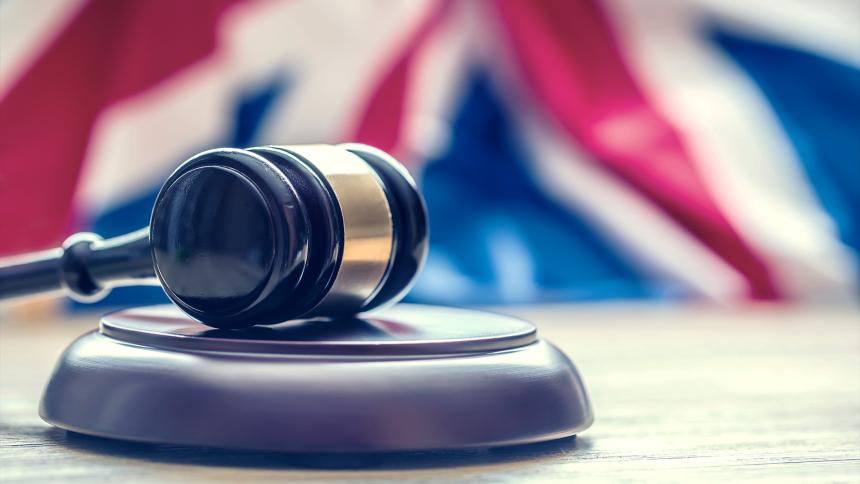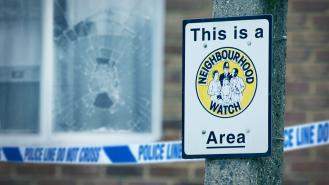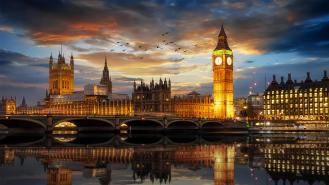
The strangest British laws still in use today
Being a law-abiding citizen can be a lot harder than you might think. Whether it’s using your phone to pay at a drive-through without turning your car off first or loitering after a funeral; some laws might be quite easy to accidentally break. A man was fined in 2015 for holding up the gravediggers at his own wife’s funeral! But with most, you can kind of see where they’re coming from. After all, laws are about keeping the peace and maintaining the safety of the general public.
But what about the ones that just don’t make sense? With all the new laws being created each year, it would make sense that we’re keeping an eye on what’s suitably illegal and what isn’t. However, there are still a surprising amount of absurd and counter-intuitive restrictions in Britain that you could very well get fined for. Here are 13 of the strangest British laws that are still in action today.
No planks in London
Thanks to the 1839 Metropolitan Police Act, it is illegal to carry a plank of wood, poles, ladders, or even placards along the pavement in the Metropolitan District. This covers the entirety of London and Greater London, with the exclusion of the City of London as they have their own police force. It’s a wonder anyone has managed to get any DIY done.
Beat your rug in private
Another 1839 Metropolitan Police Act states that it is illegal to beat or shake a rug or carpet openly in the streets of London. All rug beating must be done away from public areas. The is an exception for doormats which can be shaken, but only before 8am.
Keep your cows
It is also illegal to walk your cows through the Metropolitan district during daylight. All cattle corralling must be done outside the hours of 7am and 10pm.
Here comes the fun police
Still, on the laws from the 1839 Metropolitan Act, simple childhood pranks and fun are considered illegal. The game of knock-down-ginger (also known as a ding-dong ditch, or knock-a-door run) is against the law. If you were to “willfully and wantonly disturb any inhabitant by pulling or ringing any doorbell or knocking at any door without lawful excuse”, you could find yourself charged with a criminal offence.
However, it’s not just frustrating japes that can land you in hot water. The same act also rules out sliding on snowy or icy pathways, and thanks to the Town Police Clauses Act 1847, it is illegal to fly a kite in "any street, to the obstruction, annoyance, or danger of the residents or passengers”.
Getting drunk in a pub
Section 12 of the Licensing Act 1872 outlaws “every person found drunk in any highway or other public place, whether a building or not, or on any licensed premises”. This means that you could land a hefty £200 for getting drunk in a pub. Maybe it’s time to reconsider organising that brewery knees-up.
Drunk farmers
Along a similar vein, it’s against the law to be drunk while in charge of cattle in England and Wales. Perhaps to dissuade farmers from driving carriages, horses, or large herds of cattle into places they shouldn’t go, the law from the 1872 licensing act is still very much in play today. Interestingly, however, in Scotland, it’s only been illegal to be drunk in charge of a cow since 1972.
Total pigsty
Thanks to the Town Police Clauses Act 1847 you are not allowed to keep a pigsty in your front garden. The law reads that “Every person who keeps any pigsty to the front of any street, not being shut out from such street by a sufficient wall or fence, or who keeps any swine in or near any street, so as to be a common nuisance” - so it’s best to keep those pigs out of view!
Hanging your washing across the street
Also from the Town Police Clauses Act 1847, it is illegal to hang your washing across the street. It could land you with an eye-watering £1000 fine, so best to hang your personals out to dry with the pigs around the back instead.
Fancy dress Faux pas
We all know that impersonating an officer is an absolute no-no, but what about when it comes to fancy dress? If you’ve ever dressed as a police officer, soldier, or sailor, then you’ve technically broken the law.
Stripping off in Scotland
It’s against the law for boys under the age of ten to see a naked mannequin. The law doesn’t specify the gender of the mannequins or whether there are varying levels of nudity. Dating back to times when public decency was a serious concern, the law is still in place today (however, I doubt you’d find it being enforced all too often).
No Armour
Perhaps one of the longest-standing ludicrous laws is that members of Parliament are forbidden from wearing armour in the Houses of Parliament thanks to the Statute forbidding Bearing of Armour enacted in 1313.
Suspicious fish
According to Section 32 of the Salmon Act 1986, it is against the law to be seen “handling salmon in suspicious circumstances”. Probably (and more sensibly) tied to the illegal poaching or selling of contraband fish, it’s still delightful to imagine that you’re breaking the law by wearing a trenchcoat and dark glasses whilst buying your fish supper.
Plague, or Pox?
You might have heard about the much-storied law that London Hackney Carriage cabbies had to carry a bale of hay in the boot of their cab. Unfortunately and somewhat disappointingly, this law was repealed in 1976. However, along with it being illegal to transport dead bodies or rabid dogs, there is another throwback law that is still technically in action today.
Due to regular outbreaks of disease in historic London, cabbies were required to ask their fares if they were infected with the plague or smallpox. Fast forward a few centuries, and thanks to the Public Health (Control of Disease) Act 1984, your taxi driver “has a right to refuse anyone who may have a notifiable disease”, including plague, rabies, leprosy, and food poisoning. So don’t be offended if your cabbie throws a couple of extra diseases in when they ask to see your lateral flow tests.
No dying in Parliament
Here’s a rather odd law that could prove tricky for authorities to prosecute. It’s against the law to pass away in the Houses of Parliament. That’s because it’s technically deemed a royal palace and anyone who dies in one of those is entitled to a state funeral. So this odd piece of legislation is in place to stop us all cramming into Parliament while on the brink of death. It’d be a real effort to give us all individual state funerals.
Stop those poker nights at the library
The Library Offences Act of 1898 lays out that not only is it breaking the law to be 'disorderly' or to use abusive language inside a library, but you can also be fined for holding a card game for money in one. You will also be fined for failing to leave after the fixed closing hours, so long as you've been adequately warned.
Got cholera? Don’t return your library books
Make sure you stay away from the library if you’ve got any form of infectious disease. The Public Health (Control of Disease) Act of 1984 states that:
- A person who knows that he is suffering from a notifiable disease shall not take any book, or cause any book to be taken for his use, or use any book taken, from any public or circulating library.
- A person shall not permit any book which has been taken from a public or circulating library, and is under his control, to be used by any person whom he knows to be suffering from a notifiable disease.
- A person shall not return to any public or circulating library a book which he knows to have been exposed to infection from a notifiable disease, or permit any such book which is under his control to be so returned, but shall give notice to the local authority, or, in the case of a library provided by a county council, to that council, that the book has been so exposed to infection.
So, if you've got the sniffles, keep away from your local library. You can return when you feel better. Just leave your deck of cards and poker chips at home, of course.
No more than one ‘lunatic’ in a single residence
The Madhouses Act of 1774 sought to establish the legal framework for how mental asylums (as they used to be called) should be run. As such, it needed to set a legal definition for what constituted one. It settled on the idea that no more than one ‘lunatic’ could be housed in a single residence, property or institution at once. Not without a ‘madhouse’ licence, anyway.
Careful with that kite
There are few more innocent pastimes than flying a kite. Joyfully running about a park, as the uniquely shaped toy soars through the air, it evokes the simple happiness of youth. A somewhat darker image is the little boy or girl being bundled into the back of a police van, their charming homemade kite crushed beneath the boot of an angry police officer.
Of course, this is a slightly fanciful notion, but it is technically illegal to fly a kite in a public place. The law is there and has been since 1839, back when the sheer number of clumsy kite flyers could actually cause something of an issue in the skies above many of the country’s busier public spaces.
Don’t delay a postman
Many of us stop to have a quick chat with our friendly postman or woman, don’t we? A brief chinwag about the weather or whatever. And there’s no law prohibiting that, so long as you make sure you keep the talking to a minimum.
There’s a law that states that no Briton may legally delay the mail. This little piece of legislature from The Postal Service Act of 2000 is more about trying to stop anyone from interfering with mail, but if you bend your postie’s ear too much, you could fall foul of this obscure UK law.
The detonation of nuclear bombs is against the law
The Nuclear Explosions (Prohibition and Inspections) Act of 1998 forbids setting off nukes, you'll be pleased to learn. It says: 'Any person who knowingly causes a nuclear weapon test explosion or any other nuclear explosion is guilty of an offence and liable on conviction on indictment to imprisonment for life.'
So wouldn't that put the Prime Minister and the heads of the armed forces at risk of being forced to push the button and spend the rest of their days in the slammer? Well, no. Not quite. Only it is allowed if the explosion is signed off during 'armed conflict'.
No firing cannons in residential areas
While we’re on the subject of the interfering Nanny State stopping us from blowing things up, it turns out there’s still a law in place that strictly forbids the firing of cannons in residential areas. It’s Health & Safety gone mad!
It's the Metropolitan Police Act of 1839 that stops us all from being able to fire any form of cannon 'within 300 yards of a dwelling house'. If you're found blasting away with a firearm close to someone's home and it's more sophisticated than a typical 'fowling piece', you risk a £200 fine.











